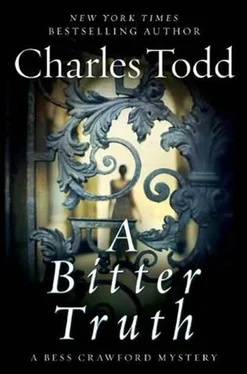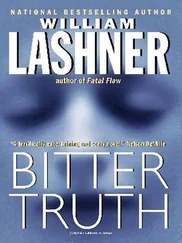A very different Roger Ellis from the man I’d encountered in Ashdown Forest. I wondered if Lydia had seen this side of him before the war. If so, I could understand why she had found the man who came home on compassionate leave almost a stranger.
I moved on to the next patient, and then it was another day, and the fighting was fierce in one sector. We began seeing the casualties around noon. It was in a brief lull that I was reminded of what the young private had said. That Roger Ellis had gone to Paris to see the dancing girls.
It occurred to me that it was a story certain to please his men. And that wherever he went, it was to find a small child who had reminded a dead man of Juliana.
One morning we were brought a dozen Australian wounded, men there was no room for in the crowded forward aid station but who were not severe enough cases to be sent back for major surgery. They were, for the most part, shrapnel victims where bursting shells tore through flesh and bone and sinew.
We had been warned to prepare for them, and the first inkling we had that they were arriving was an assortment of whistles and jeers and general catcalls, from the English Tommies lying on stretchers or sitting on whatever they could find. It was all good-natured, a rivalry of long standing. And then I heard the most maniacal laughter, so wild and crazed that I went to see what was wrong, expecting some sort of head wound. A burst of laughter followed the sound, and at that moment a tall Aussie Sergeant was limping toward me.
He greeted me just as I recognized him as the soldier I’d asked for chocolate when the nuns had brought in the five wounded children a few weeks earlier.
“Still searching for that little girl?” he asked, one hand gripping his other arm at the shoulder. I could see beneath the hasty field dressings that it was lacerated, deep wounds still bleeding.
There was no time to answer-the other sisters were there, and we got the Australian soldiers inside and began evaluating their wounds.
The Sergeant insisted that we look at his men before he would allow us to touch him, and as I worked on a leg wound, cleaning it and removing bits of shell, he sauntered over, clapped the young private on the back, and said, “Good lad.”
The boy-for he hardly seemed more than that-grinned weakly. He was pale, his teeth clenched against the pain, but his Sergeant’s praise saw him through his ordeal.
The Sergeant then turned to me. “Ever find that lass you were looking for?” he asked again.
I was surprised he’d remembered our conversation.
“No luck so far.”
“You’re not going about it the right way,” he told me. “Put the word out, let others be on the lookout for her.”
I hesitated, for I realized that word could easily get back to Roger Ellis that an English nursing sister was searching for a fair-haired orphan. But even if it did, there wasn’t much he could do about it, was there?
“I’d like to find her,” I said over my shoulder as I bandaged another soldier’s back. “Someone I knew was set on finding her and bringing her back to England. He wasn’t the father, but he knew the father didn’t care enough to rescue her. Only he was killed before he could return to France.”
“Killed?” the Sergeant asked, frowning. “In England, you mean?”
“He was murdered,” I admitted. “It’s a long story, but never mind. I just want to find her, and then perhaps her family can be persuaded to bring her home. She’ll have a better life than she could have here in this war-torn country.”
“I’ll put the word out,” he told me. “Describe her again.”
I did. “It must seem quite fantastical, but she ought to be just that pretty.”
“If you’ve never set eyes on the lass, how do you know so clearly what she looks like?”
A perceptive question. I smiled.
“There’s a portrait of another child-a-a relative of this one. I was told she bears a strong family resemblance to Juliana. That’s how I know what to look for.”
“A needle in a haystack,” he said cheerfully, “but we’ll do what we can.”
One of his men began to scream as Sister Bedford probed for an elusive bit of shrapnel.
The Sergeant was there, saying, “Buck up, my lad, you don’t want those Tommies out there laughing up their sleeves at us.”
The soldier grinned sheepishly. “No, Sergeant. But it damned well hurts .”
“You can scream at the Hun when we get back to our lines.”
That brought a shout of laughter from the others.
While I appreciated the Sergeant’s willingness to help-I was grateful, in fact-I rather thought he was enjoying flirting with me, and as soon as he and his company were back in the line, my orphan child would be forgotten.
The Sergeant himself took the painful digging in his shoulder stoically, tight lipped and teeth clenched. I could see the muscle in his jaw clearly.
When we’d finished, he ordered his men to follow him, and “stop cluttering up the sisters’ ward.”
I said, “Wait, where is the man with the head wound?”
He looked at me, then scanned his company. “The only one with the head wound didn’t make it, Sister,” he said, frowning. “Unless you’re counting Teddy, there, of course.”
He gestured to the private who had had bits of shrapnel in his scalp.
“I’m sorry,” I said, thinking that the man must have died outside the station. I added, “But I daresay your man Teddy will survive.”
“You’d better believe he will,” the Sergeant said, grinning. “I promised his mother special.”
And they were gone.
One of the sisters working on a stretcher case watched them walk away. “I do like tall men,” she commented. “And that one in particular.”
My next encounter with the Australian Sergeant was nearly a fortnight later, in the form of a message brought to me by a Scottish Corporal who had met him on a muddy road outside Ypres. The Corporal’s arm was in a makeshift sling, and I could tell before I had cut away his sleeve that it was badly broken. He said, his face pale with pain, “Is there a Sister here called Crawford?”
“I’m Sister Crawford,” I said as I finished with the scissors and laid bare the broken limb.
“I’m to gie ye this, then,” he answered, and with his good hand, he fished a slip of dirty paper from his blouse. “There’s a Sergeant Larimore fra’ Australia who’s been sending messages back by any wounded laddie he meets.”
“Ah, the Australian,” I said, smiling, taking the sheet and opening it. I found it was a list of orphanages that he’d somehow come up with by questioning everyone in sight, or so it appeared. I could never have collected such a list on my own, not without weeks of intense searching.
“Bless him,” I said, after scanning it.
The Corporal replied, “If it’s only a list that will make ye smile, I’ll draw up one masel’.”
Shaking my head, I said, “It’s not any list. I’m searching for a convent that used to be in a house on the road south of Ypres. They took in a number of orphans, but with the fighting had to move south to Calais. After that I’ve lost touch with them. There’s a child in that group of orphans that I’m trying to find, for a-a friend.”
“Ye’ll niver find one child in the hotch potch of religious houses,” he said earnestly. “Ye ken, there’s likely one on ivery corner.”
Spoken like a true Scots Covenanter, I thought, scandalized by Catholic France.
The doctor had come to have a look at his arm, and I prepared to move away.
“Is it important, Sister?” the Corporal asked. “Yon list.”
“Very.”
“Aye, well, I’ll pass the word back,” he told me, and I thanked him.
Читать дальше












